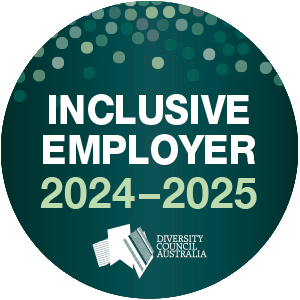17 May 2018
On International Day Against Homophobia, Biphobia, Intersexism and Transphobia
(
VAC began in 1983 as a volunteer-led community group comprised of men who identified as gay, banding together in response to the HIV/AIDS epidemic. While VAC is still a community driven service, it now engages with the entire LGBTI+ community across a range of health issues, including: HIV treatment; care and prevention education; and counselling. It also runs a specialist Men’s Behaviour Change Program (MBCP) for gay and bisexual (GB) men, ReVisioning.
Family Violence Practitioner, Anthony Lekkas, who has worked in mainstream and LGBTI+ family violence spaces for over 10 years, was instrumental in developing the ReVisioning program. When Anthony arrived at VAC in 2014, ReVisioning was barely operating with low attendances, no government funding and difficulty recruiting facilitators. The program originally grew out of VAC’s counselling services and later with Anthony’s determination to revive it, became the go-to GB specialist MBCP it is today.
According to Anthony, “when the mainstream service sector was already formed and rolling out groups, we were able to properly fund all aspects of the program, including partner contact. We also began forming good relationships with stakeholders such as the Courts and Police.
“We noticed that there were some themes coming up in our couples counselling programs that required more than just a therapeutic space to work through and explore relationship issues; issues around dominance and intimidation, power and control, and physical violence” says Anthony.
Identifying as a bisexual cisgender man, Anthony understands the value of specialist LGBTI+ services to work with men who use violence. He hopes one day specialist services won’t be necessary and people from LGBTI+ communities can safely and confidently receive the tailored health services they need from anywhere, but until then, he says specialist programs are an essential service.
Anthony continues, “our peer-led services are so important – that is people from the community providing services for that community. We hear clients say that they came here specifically for that reason. That’s not because mainstream services won’t offer sophisticated, skilled and effective interventions, but there is something about having that common denominator – that lived experience.” he says.
Despite the tendency for LGBTI+ clients to more readily engage with a specialist service, Anthony is also aware that working with same-gender attracted men who use violence, presents an extra layer of perceived challenges around non-collusive practice. That’s why the ReVisioning program is committed to a victim-centred, non-collusive practice that holds men accountable for their behaviour.
Addressing the widespread effects of hetero-sexism and homophobia that play out in his clients also provides unique challenges in a specialist group. Though much of VAC’s underlying practice is the same as that used in mainstream MBCPs, ReVisioning places emphasis on addressing homophobic violence within the community and entrenched societal ideas of manhood which devalue homosexuality and can prevent help-seeking behaviours.
“There’s still this idea that family violence isn’t taken seriously in gay communities” says Anthony. At the beginning of all his groups, Anthony reinforces the message that violence in the queer community is a serious issue; that men need to be held accountable for it; and it can be in some instances criminal. “I remember one participant saying to me on one of the early nights that ‘men’s violence against women is worse than queer family violence’. He said that because it [family violence] doesn’t get talked about a lot in our community and it’s largely framed as a straight issue” says Anthony.
After working with this man for 12 weeks, making him understand the impact of his violence on his partner, he still held that view at the end of the program. “I think that experience speaks to the challenges we face, not just within queer community services but in general social settings. People still say violence is just a women’s issue and it’s not for the queer community to be concerned about” says Anthony.
Anthony says this messaging is slowly changing but there’s more learning to be done. “This extends to Police responses. We know that in many cases Police will neutralise the violence where two men are present.”
For these reasons and more, VAC continue to lead education and advocacy around the queer family violence space. “We do a lot of talks, secondary consultations and visit organisations to provide them with the feedback our clients give us about their experiences with services and how services can be more inclusive of our community” says Anthony.
Anthony is reluctant to say his or any other MBCP is 100% effective; but does believe they are important for creating change in men who use violence. “I do know for sure that the partners are telling us they do value the partner contact service. They’re getting an opportunity to share information and they know that that information is believed” say Anthony.
“The men openly report that there’s something valuable about coming to this organisation and speaking freely about what’s really going on in their relationship as well as the abuse they’re using. They use their partners name and can talk about things they do in community that might otherwise raise eyebrows in mainstream groups. They can just ‘name it'” say Anthony.
VAC is a proud partner and participant of the IDAHOBIT 2018 celebrations happening at Federation Square in Melbourne from 5pm, Thursday 17 May.
VAC’s next ReVisioning group will begin on 17 July, running for 20 weeks and is now open for referrals.
For more information visit vac.org.au








